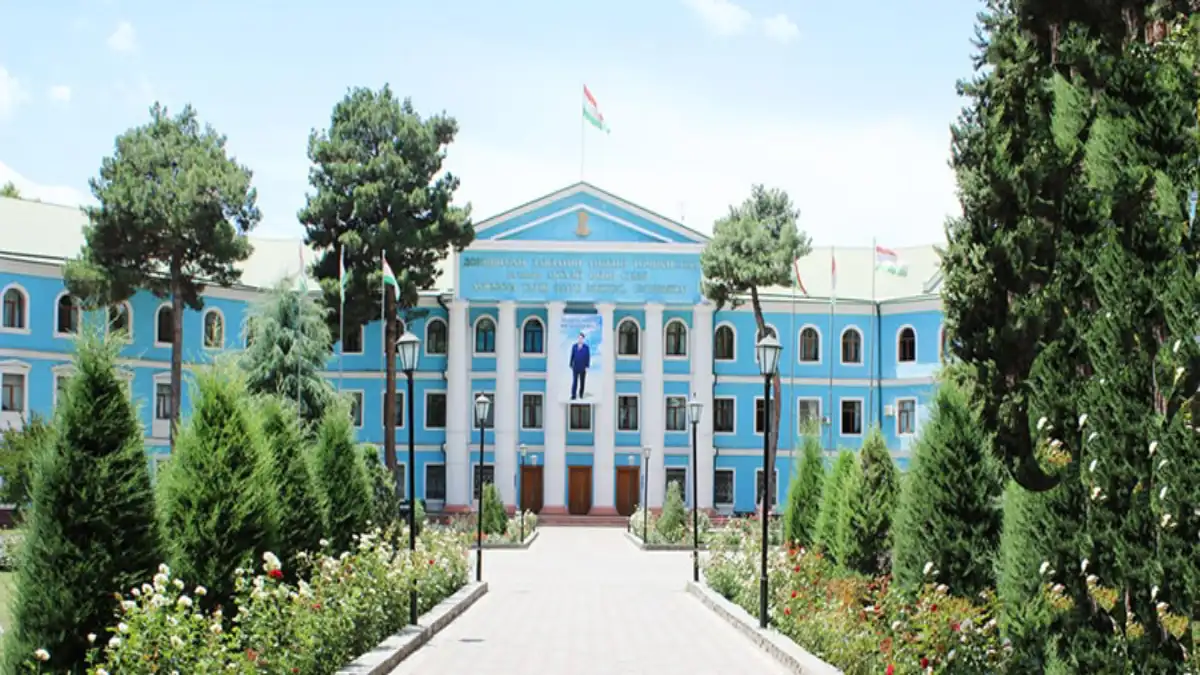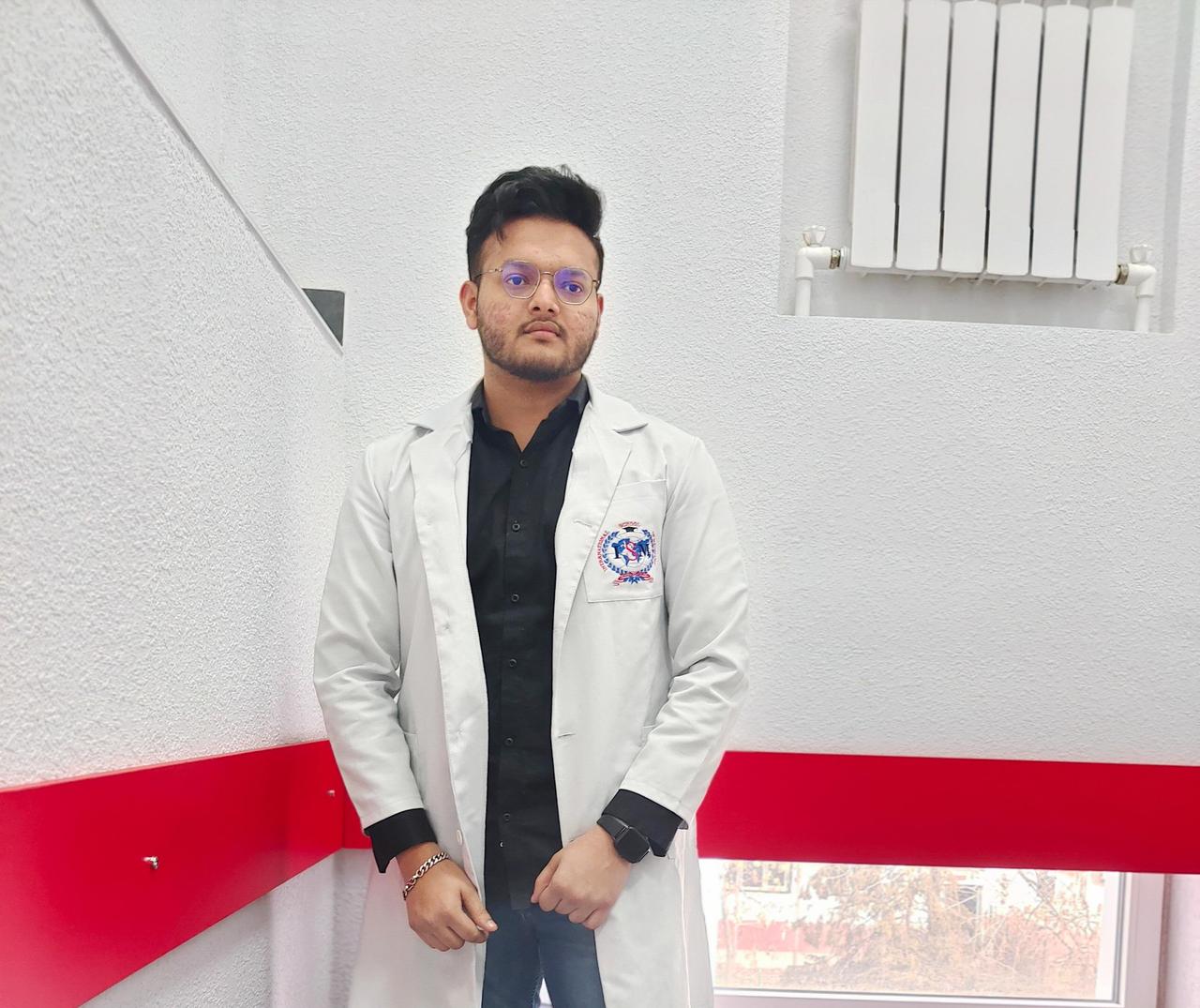MBBS in Tajikistan
Your Gateway to World-Class Medical Education
Overview of MBBS in Tajikistan
Tajikistan, a culturally rich nation in Central Asia, is gaining popularity among international students pursuing quality medical education. Surrounded by majestic mountains and known for its warm hospitality, affordable living, and peaceful environment, Tajikistan offers a perfect blend of academic focus and cultural immersion.
Medical universities in Tajikistan follow international medical education standards, making them a suitable choice for students aiming to practice in India, the Gulf countries, and other regions recognizing global medical qualifications.
Duration
4.5 + 1 Years
Medium of Instruction
English
Recognition
WHO, ECFMG, MCI/NMC
Intake
September & January
Top Medical Universities in Tajikistan
Medical-Social Institute of Tajikistan
The Medical-Social Institute of Tajikistan (MSIT), established in Tajikistan, is a prestigious university that offers a unique combination of practical and theoretical education.
- Exposure to modern medical technologies.
- Strong emphasis on patient care and clinical skills.
- Internship opportunities in affiliated hospitals.
- Advanced simulation labs for practical learning.

Tajik National University
TNU in the XXI century has strengthened its leadership in the system of higher education of the Republic of Tajikistan.
- Internationally recognized MBBS curriculum.
- Advanced simulation labs for practical learning.
- Internship opportunities in affiliated hospitals.
- Exposure to modern medical technologies.

Avicenna Tajik State Medical University
The university was named after Abu Ali Ibn Sino. It has been Tajikistan's leading medical university since its establishment.
- Exposure to modern medical technologies.
- Internship opportunities in affiliated hospitals.
- Advanced simulation labs for practical learning.
- Strong emphasis on patient care and clinical skills.
Admission Process
Check Eligibility
- Minimum 50% marks in PCB (40% for reserved category)
- Must have completed 10+2 or equivalent
- NEET qualification (mandatory for Indian students)
- Minimum age: 17 years by 31st December of admission year
Document Preparation
- 10th and 12th mark sheets
- NEET scorecard
- Passport copy
- Passport-size photographs
- Medical certificate
Apply to University
- Fill application form for chosen university
- Upload/submit required documents
- Pay the application/registration fee
Receive Admission Letter
- University reviews application and issues offer letter
- Confirm admission by paying initial fees
Visa Application
- Apply for student visa at Tajikistan Embassy/Consulate
- Submit admission letter, passport, medical & financial documents
Travel & Join University
- Book your flight to Tajikistan
- Arrange airport pickup (if provided)
- Complete registration at university
- Begin your MBBS journey!
MBBS Curriculum in Tajikistan
Medical universities in Tajikistan offer a 6-year MBBS program, structured into pre-clinical, para-clinical, clinical, and internship phases. The curriculum is designed to meet international standards and ensure students are fully prepared for global medical practice.
Pre-Clinical Phase (Years 1–2)
- Human Anatomy
- Physiology
- Biochemistry
- Histology
- Medical Terminology
- Embryology
Para-Clinical Phase (Years 3–4)
- Pathology
- Microbiology
- Pharmacology
- Forensic Medicine & Toxicology
- Community Medicine
- Immunology
- Genetics
- Introduction to Clinical Medicine
Clinical Phase (Year 5)
- Internal Medicine
- General Surgery
- Pediatrics
- Obstetrics & Gynecology
- Psychiatry
- Radiology
- ENT (Ear, Nose, and Throat)
- Ophthalmology
- Elective Rotations
Internship (Year 6)
The final year consists of a 12-month mandatory clinical internship at affiliated hospitals, where students gain real-world experience under professional supervision.
Fees and Living Costs
Tuition Fees
$3,000 - $4,000Per year, varies by university
Accommodation
$200 - $500Monthly rent for hostel or apartment
Food & Living
$100 - $200Monthly expenses for food and essentials
Books & Supplies
$100 - $200Per year for textbooks and equipment
Health Insurance
$100 - $300Annual coverage for medical students
Travel & Misc.
$500 - $1,000Annual expenses for travel and miscellaneous
Note: These are approximate figures and may vary based on individual lifestyle choices, university, and specific location within Tajikistan. Some universities offer scholarships and financial aid options to help offset these costs.
Advantages of Studying MBBS in Tajikistan
English-Medium Instruction
Most universities offer MBBS programs in English, making it accessible to international students without a language barrier.
Affordable Tuition Fees
Tajikistan offers low-cost medical education with quality training, ideal for students from South Asia and other regions.
Globally Recognized Degrees
Medical degrees are recognized by WHO, ECFMG, FAIMER, and NMC, enabling students to practice medicine worldwide.
Modern Hospitals & Clinical Exposure
Students receive practical training in modern hospitals affiliated with medical universities.
Indian Student-Friendly
Many Indian students choose Tajikistan for MBBS, creating a supportive and familiar student community abroad.
Easy Admission Process
Admissions are hassle-free with no entrance exam like NEET required for some universities (though NEET is needed for practicing in India).
Post-Graduation Prospects
Practicing in India
Indian students graduating from Tajikistan must clear the Foreign Medical Graduate Examination (FMGE) or the National Exit Test (NEXT) conducted by NMC to practice medicine in India. A 12-month internship in India is also mandatory post-clearance.
Practicing in the US
Graduates can appear for the USMLE (United States Medical Licensing Examination). Upon passing all steps and completing residency, they are eligible to practice medicine in the US.
Practicing in the UK
To practice in the UK, graduates must pass the PLAB (Professional and Linguistic Assessments Board) test and complete GMC registration. English proficiency tests like IELTS or OET are also required.
Practicing in Canada
Medical graduates from Tajikistan must pass the MCCQE exams and secure a residency spot through CaRMS to practice in Canada, though the process is highly competitive.
Opportunities in Other Countries
Degrees from Tajikistan’s recognized medical universities allow graduates to apply for licensure in various countries such as Australia, Germany, and Gulf nations, after fulfilling their respective screening or licensing exams.
Student Life and Culture in Tajikistan
Academic Environment
Medical universities in Tajikistan offer a structured academic setting with experienced faculty and modern infrastructure, focusing on both theoretical knowledge and practical exposure.
International Student Community
Tajikistan attracts students from India, Pakistan, Nepal, and various African and Middle Eastern countries, creating a diverse and supportive student atmosphere.
Affordable Living
The cost of living in Tajikistan is relatively low. Students enjoy budget-friendly accommodation, meals, and transportation, making it an economical option for international study.
Natural Beauty & Culture
Surrounded by the majestic Pamir Mountains, Tajikistan offers scenic beauty, along with a rich cultural heritage influenced by Persian, Russian, and Central Asian traditions.
Safe & Student-Friendly
Major cities like Dushanbe are considered safe for international students. Universities also provide on-campus hostels and support services to ease student life abroad.
Frequently Asked Questions
Are medical degrees from Tajikistan recognized internationally?
Yes, medical degrees from recognized universities in Tajikistan are listed by the World Health Organization (WHO) and are accepted by medical councils in countries like India (NMC), Pakistan (PMC), and others. Graduates can appear for exams like FMGE/NExT (India), USMLE (USA), and PLAB (UK) based on their goals.
What are the admission requirements for medical universities in Tajikistan?
Applicants must have completed high school with science subjects including Biology, Chemistry, and Physics. A minimum of 50% marks (or equivalent) in PCB is generally required. NEET qualification is mandatory for Indian students as per NMC guidelines.
Is it possible to practice medicine in India after studying in Tajikistan?
Yes. Indian students must pass the Foreign Medical Graduate Examination (FMGE) or the National Exit Test (NEXT) after completing their MBBS in Tajikistan to be eligible to practice in India.
Are scholarships or financial aid available for international students?
While Tajik universities offer affordable tuition, some institutions provide scholarships or tuition discounts for academically strong students. Students can also explore education loans or government scholarship schemes from their home country.
What is the cost of living in Tajikistan for students?
The average monthly cost of living for students in Tajikistan ranges from $300 to $500, including accommodation, food, local travel, and personal expenses, making it a highly budget-friendly option for international students.
How is the clinical training structured in Tajik medical universities?
Clinical training usually starts from the third or fourth year, where students participate in hands-on hospital rotations in disciplines like Internal Medicine, Surgery, Pediatrics, and more. Training is provided in university-affiliated hospitals with adequate patient exposure.
Student Testimonials
Get in Touch
Have questions about studying medicine in Tajikistan? Our expert counselors are here to guide you through every step of your medical education journey.

